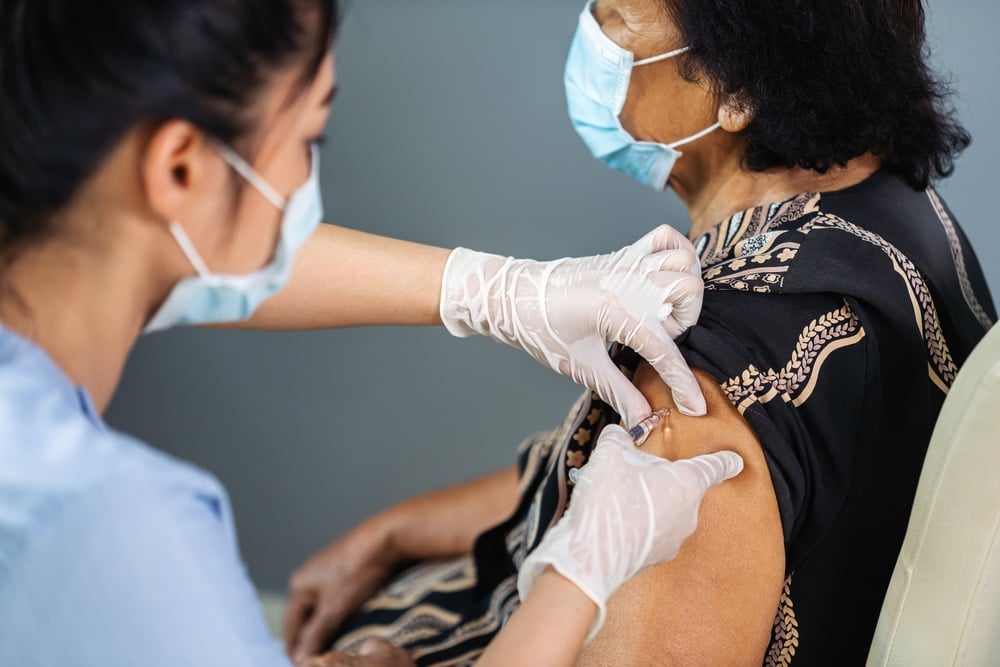Newsletter Signup - Under Article / In Page
"*" indicates required fields
Patients with nasopharyngeal cancer are often treated with drugs that activate their immune system against the tumor. It was feared that vaccination against Covid-19 could reduce the success of cancer treatment or cause severe side effects.
However, a recent study by the universities of Bonn, Germany, and Shanxi, China, say this isn’t the case.
According to the study, the cancer drugs actually worked better after vaccination with the Chinese vaccine SinoVac than in unvaccinated patients. The results were published as a “Letter to the editor” in the journal Annals of Oncology.
Many cancer cells subvert the body’s immune response. They do this by pushing a kind of button on the immune cells, the PD-1 receptor. This effectively shuts down these endogenous defense forces. Drugs can be used to block PD-1 receptors, and this enables the immune system to fight the tumor more effectively.
Vaccination against Covid also stimulates the immune response, involving the PD-1 receptor.
Affecting upper respiratory tract
“It was feared that the vaccine would not be compatible with anti-PD-1 therapy,” said Jian Li of the Institute of Molecular Medicine and Experimental Immunology (IMMEI) at the University Hospital Bonn.
“This risk is especially true for nasopharyngeal cancer, which, like the SARS Cov-2 virus, affects the upper respiratory tract.”
Patients vaccinated against Covid responded better to cancer therapy
More than 1,500 patients treated in 23 hospitals across China participated in the analysis. A subset of 373 affected individuals had been vaccinated with the Chinese Covid vaccine SinoVac.
“Surprisingly, they responded significantly better to anti-PD-1 therapy than the unvaccinated patients,” said Christian Kurts, director of IMMEI and member of the transdisciplinary research area “Life & Health” and the Cluster of Excellence ImmunoSensation.
“Furthermore, they did not experience severe side effects more often.”
The researchers cannot say why the treatment was more successful after vaccination.
“We assume that vaccination activates certain immune cells, which then attack the tumor,” said Qi Mei of Shanxi University Hospital.
“We will now investigate this hypothesis further.”
Nasopharyngeal cancer is widespread in southern China and other countries in Southeast Asia. In Taiwan, nasopharyngeal cancer is now considered one of the leading causes of death among young men.
Oncology R&D trends and breakthrough innovations







